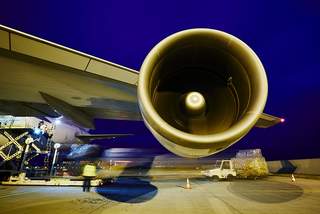
© Fotolia/chalabala
First global climate protection instrument for aviation in the starting blocks
Even before the climate debate and before "Fridays for Future" demonstrations, the aviation industry has already taken up the cause of climate protection at international level and set the first course to enable air traffic to grow in a CO2-neutral way. The so-called "Carbon Offsetting and Reduction Scheme for International Aviation" (CORSIA) stands for international air traffic in the starting blocks. It will be the first market-based system to tackle the international climate protection policy goals in the field of civil aviation on a global scale. From 2021, the growth-related CO2 emissions in air traffic will be offset by climate protection projects with the help of CORSIA. Although the practicability and constructiveness of CORSIA has yet to prove itself in the coming years, the significance of this first-time agreement for an international climate protection agreement in the field of civil aviation should not be underestimated.
Introduction of CORSIA in 2021
According to the latest information, 81 states have already committed themselves to implement CORSIA from the very beginning. Among them are almost all European countries, the USA, Canada and Japan. Together they represent about three quarters of the worldwide aviation activities. Nevertheless, this is likely to have a significant effect on the industry's climate protection policy objective - to ensure CO2-neutral growth - as soon as CORSIA is launched in 2021. The pilot phase, which will last until 2023, will then be followed by an equally voluntary first phase until 2026. In phase 2, which lasts from 2027 to 2035, participation is largely mandatory. Participation will then be subject to the proviso that a total of 90 percent of the growth-related CO2 emissions are compensated. Starting in 2022, CORSIA will be reviewed every three years for its effectiveness and efficiency.
Offsetting system as a climate protection instrument
CORSIA is a so-called offsetting measure. A characteristic feature of such a system is that the emissions caused by an industrial sector are offset outside of this sector. This is done by the airlines financing CO2-reducing and ICAO-certified climate protection projects worldwide, in which the emissions from air traffic are compensated in the corresponding order of magnitude. The projects are financed by means of exchange-traded certificates, which international airlines will have to purchase in the future.
Preferring a global climate protection instrument to going it alone
In the past, the BDI has always represented the interests of the German aviation industry without losing sight of the significance of CO2-neutral growth in the aviation industry. However, the emissions trading system currently practiced in the EU causes considerable competitive disadvantages at the expense of European airlines. In order to ensure competitive neutrality vis-à-vis foreign competitors from now on, the global approach, as now decided by the ICAO, is preferable to a European solo effort. It must also be ensured that the introduction of CORSIA will eliminate the need for an additional European solution.



